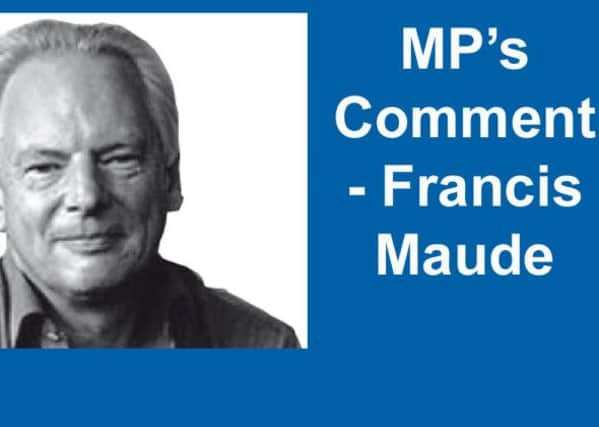Francis Maude: It’s right to continue with pay restraint


This strike has been called by the Public and Commercial Services Union (PCS). The stated objective has been pay - it being argued the one per cent that is being offered is not enough. The reality of course is that Britain still has a budget deficit that is far too large. In Government we can never forget that - unlike Ed Miliband, who famously did.
There’s a really simple equation. The more we pay, the fewer jobs there will be and the more damage done to front line public services on which vulnerable people depend. So I make no apology for us continuing with pay restraint.
Advertisement
Hide AdAdvertisement
Hide AdSome NHS staff went on strike on Monday. This was also about pay. Jeremy Hunt had decided to over-rule the recommendation of the Pay Review Body that staff should receive a one per cent award. The reason was that very many NHS staff automatically get a pay increase of three per cent anyway, as part of what is known as ‘progression pay’, theoretically reflecting greater experience. But progression pay is a historical relic, which makes little sense in the modern world. Pay increases should reflect responsibilities and performance as well as the cost of living.
And it’s good news that inflation, which measures increases in the cost of living, is falling. This week saw it fall to 1.2 per cent, the lowest for five years. This, coupled with interest rates that remain historically very low, is further confirmation that it’s right to continue with pay restraint.
Another thought on strikes. PCS are calling Wednesday’s strike on the basis of a strike ballot that took place in March 2013. Only 28 per cent of eligible PCS members even voted then, of whom 61 per cent voted in favour of strike action. So a strike has been called, which risks damaging the economy and disrupting people’s lives, on the basis of a ballot 18 months old, in which fewer than one in five of eligible members voted for strike action. That can’t make sense. So we’ve said that a future Conservative government will legislate to say that a strike is only lawful if at least half of eligible members vote in the strike ballot. In addition, a mandate given in a ballot should remain in place for a strictly limited period, perhaps three months.
So I hope that Wednesday’s strike will have had little impact on the public.
We always prepare careful contingency plans.
But it caused me to reflect again on the need for us to modernise our outdated strike laws.